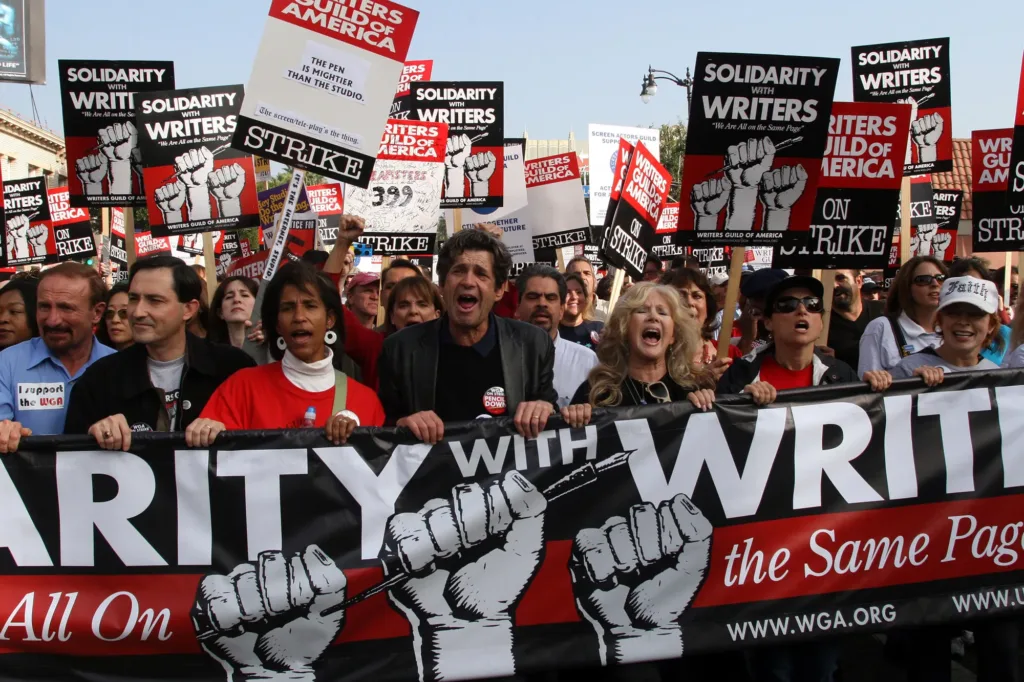Tentative Agreement Reached
After a lengthy 148-day wait, the Hollywood writers’ strike has officially come to a close. The Writers Guild of America (WGA) has signed a tentative agreement with the Alliance of Motion Picture and Television Producers (AMPTP), marking a significant turning point in the entertainment industry. This agreement is an important step toward resolving the issues that led to the strike.
Unanimous Decision to End the Strike Order
Following the tentative agreement, the boards of both WGA West and WGA East unanimously decided to lift the strike order. This decision allowed writers to return to work as early as Wednesday, even before the final ratification vote, which will take place from October 2 to October 9.
Reviewing the Details
To ensure transparency and inform their members, the WGA will hold meetings on both coasts, offering in-person and Zoom options for participation. These meetings will provide writers with an opportunity to review the 94-page contract and understand the new terms negotiated in their favor.
Key Highlights of the Agreement
The agreement between the WGA and AMPTP includes several significant provisions:
- Wage Raises: Writers will benefit from wage raises, addressing one of their key concerns.
- Minimum Personnel in Writers Rooms: There will be new requirements for minimum personnel numbers in TV writers’ rooms, safeguarding job opportunities.
- Improved Payment Terms: Screenwriters will enjoy improved payment terms, ensuring fair compensation for their work.
- AI Safeguards: The agreement includes safeguards against the use of artificial intelligence (AI) in the writing process. Notably, AI-generated material will not be considered source material under the contract, preventing it from undermining a writer’s credit or rights.
AI in Writing
The role of AI in writing was a major point of contention. The agreement outlines the following key points regarding AI:
- AI cannot write or rewrite literary material, ensuring that human creativity remains at the forefront.
- Writers can choose to use AI with the company’s consent and adherence to company policies, but they cannot be compelled to use AI software.
- Companies must disclose if materials given to writers have been generated by AI.
- The WGA reserves the right to assert that exploiting writers’ material to train AI is prohibited by the contract or other relevant laws.
End of the Strike Order
With the WGA’s vote to end the strike order, the work stoppage that had been in effect for months has officially concluded. The WGA had previously suspended picketing, and members were urged to support SAG-AFTRA picket lines while negotiations continued.
A Complex Negotiation Process
The strike, which began on May 2, saw 11,500 WGA members cease work due to various concerns, including increased pay, the use of AI in script creation, and staffing issues related to streaming shows’ performance. The tentative agreement represents a significant milestone in addressing these concerns and restoring stability to the entertainment industry.
In conclusion, the Hollywood writers’ strike has ended, and the entertainment world can look forward to writers returning to their creative work with a renewed sense of optimism. The agreement reached between the WGA and AMPTP addresses key issues and provides a framework for the industry’s future.
Also Read: Rare Footage: Dumbo Octopus Spotted 8,000 Feet Deep In The Ocean






